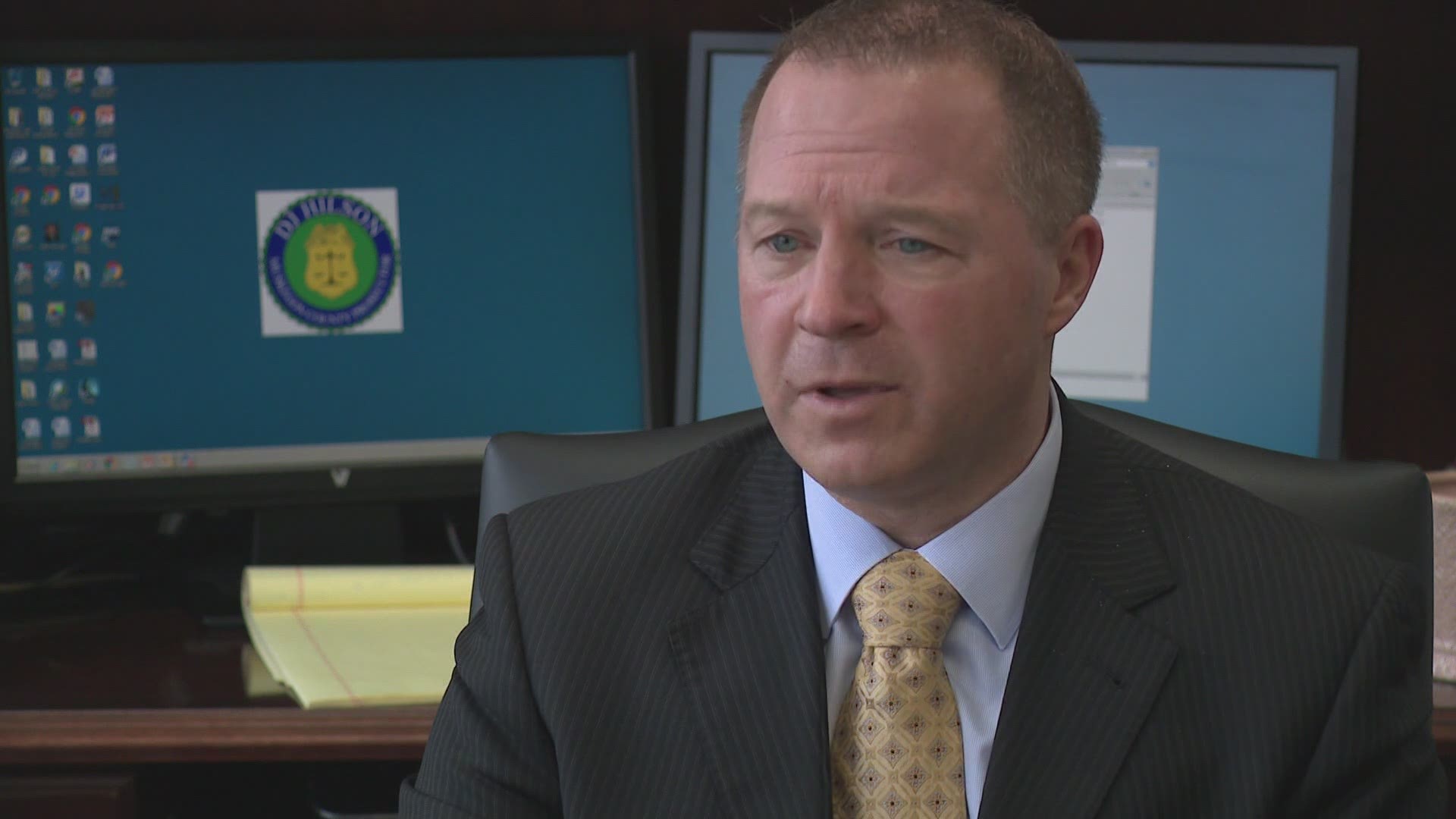MUSKEGON COUNTY, Mich — In 2019 Michigan Gov. Gretchen Whitmer assembled the Michigan Joint Task Force on Jail and Pretrial Incarceration. Members of the task force were asked to study every facet of the state's criminal justice system, from the moment of arrest, to the treatment of felons after incarceration.
The task force included judges, police chiefs, county commissioners, members of the state house and senate and one county prosecutor, D.J. Hilson from Muskegon County.
"Various stakeholders had a seat at the table, and prosecutors obviously are a big stakeholder in the criminal justice system, Hilson said Thursday from his office at the Muskegon County Hall of Justice. "It was a complete revisit if you will of the justice system."
The task force toured the state in 2019 holding dozens of meetings and community forums. That effort lead to a bipartisan package of 20 criminal justice reform bills aims to reduce Michigan's jail population by prioritizing alternatives to jail and reshaping penalties for low-level infractions.
Some of the new bills signed into law by Gov. Whitmer early in January shift individuals away from jail unless they pose a threat to public safety.
The laws do the following:
- Eliminate license suspension for violations of the law unrelated to dangerous driving.
- Reclassify many traffic misdemeanors as civil infractions.
- Eliminate mandatory minimum jail sentences in the Motor Vehicle Code, School Code, Natural Resources and Environmental Protection Act, Railroad Code, and Public Health Code.
- Expand law enforcement discretion to issue citations for most misdemeanors and presumes citation in lieu of arrest in many cases.
- Create a presumption of a sentence other than jail for most misdemeanors and certain felonies.
- Expand eligibility for deferred judgment of guilt to 24- and 25-year-olds under the Holmes Youthful Trainee Act.
- Reduce probation terms, tailor probation conditions to address risks and needs, and cap jail sanctions for technical probation violations.
- Tailor parole conditions to address risks and needs.
Hilson is pleased all the work he and others put into the task force is creating change in the criminal justice system that's expected to be fair for not only victims but those accused and convicted of crimes.
"You still have to remember the public wants to be safe and victims want to feel justice," said Hilson.
The new laws are set to take effect between April. 1 and Oct. 1.
"Certainly business is going to be different," said Hilson. "I think it is important to make sure the process is living up to what it should be which is fair and just for all."
Outside of the recommendations from the task force Gov. Whitmer also signed new bills into law eliminate a lifetime ban on food assistance for certain felons, and removed barriers that prevented felons from obtaining professional licenses in Michigan.
►Make it easy to keep up to date with more stories like this. Download the 13 ON YOUR SIDE app now.
Have a news tip? Email news@13onyourside.com, visit our Facebook page or Twitter. Subscribe to our YouTube channel.

